Make it yours
Every experience is customised to be just right for you.
WILDLIFE VOLUNTEERING: THE RED FLAGS MOST PEOPLE MISS
Learn more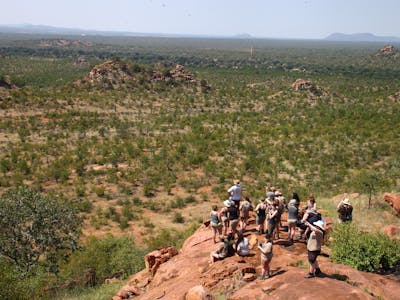
This Creativity Activity Service (CAS) field trip offers students the rare opportunity to contribute to real global conservation efforts in one of Africa’s most biodiverse and ecologically important areas. From supporting field studies into species on the brink of extinction to restoring natural habitats degraded by agricultural expansion and the pressures of food security, they’ll engage directly with issues of global importance.
Through immersive fieldwork and interactive discussions led by local conservation professionals, students will explore real-world ethical debates such as rhino horn trimming and the challenges of balancing conservation and community land use from an African perspective - learning to communicate informed views of their own.
Living and working in a remote bush camp, the back-to-basics setting encourages students to reflect on their experiences while fostering resilience, teamwork and deep engagement with their surroundings.
With experiential learning, personal growth and real impact at its heart, this journey leaves a lasting impression - not just on students, but on the people and places they’ll support along the way.


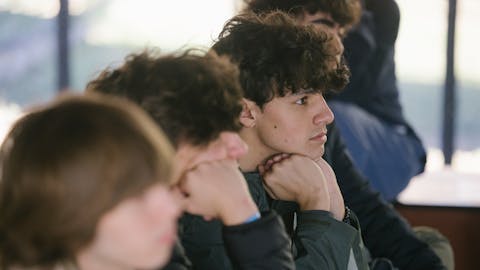
This trip has been designed specifically to meet the learning outcomes of CAS, through cultural immersion and practical service work.
Through debates and first-hand experiences, students will learn how global issues such as poaching and the illegal wildlife trade influence wildlife conservation in southern Africa. They will explore how waste and pollution affect remote regions and help develop creative recycling solutions. Students will also have time to debate the ethical questions conservationists grapple with every day.
Living communally in a remote camp with basic amenities and helping the project’s kitchen team prepare meals can be challenging. Students will develop the collaborative skills needed to live and work together in an unfamiliar setting.
Throughout your expedition, students will work alongside conservation professionals in the field, applying theoretical learning to practical problems.
While this field trip is ideal for all International Baccalaureate students, we cater for a wide variety of learning outcomes. We can even provide learning resources to help you prepare students for their CAS field trip.
Step away from the popular opinions and value systems of the Global North and explore Afrocentric perspectives of wildlife conservation and sustainable development. Students will have the chance to hear first-hand stories from local people and learn about the historical and social context of modern wildlife conservation in Africa.
Live and work on a real wildlife research project within the Greater Kruger area - one of Africa’s most biodiverse and ecologically important regions and the perfect example of why large connected landscapes are vital to maintain genetic diversity and large populations of species like lions and elephants.
This is a suggested itinerary. Every field trip can be customised to be just right for you and your group.
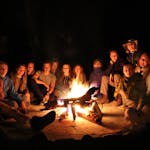
Welcome to your off-grid base camp, deep in the Greater Kruger National Park - home to the Big 5 plus hippo, giraffe and wild dog among others. Your group will have exclusive use of the camp with accommodation in safari tents with comfortable beds. Throughout your stay, students will help prepare meals, wash dishes, and keep the camp clean and running smoothly - a great way to learn important life skills. Evenings are usually spent around a crackling fire, soaking in the sounds of the bush at night.
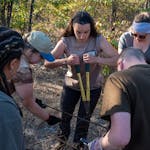
Removing invasive plant species is vital for protecting biodiversity, as they can outcompete native plants and disrupt natural processes. By eliminating invasives, students will help restore and improve habitats for native species, and ensure the overall health of the ecosystem. Clearing out old fencing material is just as important, as this can be used by poachers to create snares or entangle wildlife leading to injury or death. By extracting this material students will actively save the lives of African wildlife.
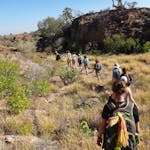
Head into the bush on foot and gain insight into how wildlife is effectively protected and monitored on the ground. While on the walk, students will help look for snares and other signs of poaching activity. (Don’t worry, this is a safe activity focused on learning, not encountering poachers!) Students will also learn how to recognise and identify different African animal species and their tracks out in the wild - vital skills in any game ranger’s toolbox.
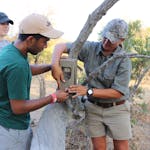
Assist the rangers in setting up camera traps to carry out real-time monitoring of wildlife. Head out on game drives to learn how to use digital and hard-copy maps to apply sampling techniques and record species’ presence. And practice real-world scientific data collection skills while observing a diverse range of species at a watering hole.
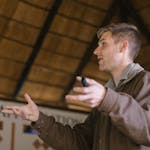
Throughout this field trip, students will engage in talks and debates about important conservation topics. From the ecology of the Greater Kruger area and how it connects with protected ecosystems in Zimbabwe and Mozambique, to ethical questions around elephant overpopulation and whether hunting still has a place in modern-day conservation.
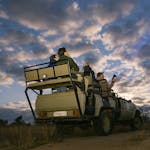
Embark on a thrilling night drive to search for nocturnal species such as bushbabies, leopards and hyenas. Learn how to use a spotlight to find these species while ensuring no negative impact on the animals. Then enjoy an astronomy lesson under the vast African sky where students will learn to identify constellations visible in the southern hemisphere.
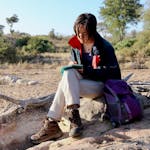
Students can undertake their own research projects to get a feel for every step of the scientific process, from planning their study, collecting data, to presenting their findings to their peers. The location presents a multitude of possible research topics. Some recent examples include the degrees to which elephants strip bark from different trees, how vegetation density affects wildlife distribution, and the correlation between wind speed and the size of impala herds.
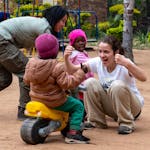
Spend the morning at a local NGO which offers a crèche to support children while their parents work on nearby farms. Students will get to help in the food garden, assist with the upkeep of the centre, and support educational playtime with the children. The time they spend at the creche is an opportunity for everyone to learn more about different cultures and engage in meaningful exchange.
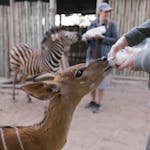
Take a behind-the-scenes tour at one of Africa's largest wildlife rehabilitation centres. The experienced team at Moholoholo will introduce students to their resident birds of prey, big cats, honey badgers, bushbabies, hippos and other species - and explain the vital role animal care and rehabilitation plays in wildlife conservation. Returning to camp in the evening, they will have a fireside debate about the pros and cons of wildlife sanctuaries.
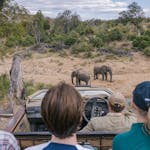
Exploring the public areas of the National Park in open-sided safari vehicles with expert guides, students will have an incredible opportunity to see some of Africa’s most iconic wildlife up close. This excursion offers students the chance to encounter wildlife species they haven’t yet seen, deepen their understanding of the national park’s rich biodiversity, as well as learning about public and private land management in African conservation.
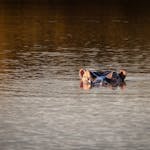
Head to the Blyde River Canyon, the largest vegetated canyon in the world, where students can take in awesome views from the water and witness some of Africa’s most iconic aquatic wildlife species including the hippopotamus and nile crocodile. They will also have the chance to hike up to a spectacular waterfall to cool off in the lagoon. The water is pure, refreshing and perfectly safe to swim in.

Travel back to Johannesburg and spend the night. Experience the vibrant energy of a modern African metropolis, a striking contrast to the untamed wilderness of the bush you’ve just left behind.
Spend the following day exploring the chequered history of South Africa’s largest city en-route to your return flight. Students will visit Constitution Hill, discovering the injustices experienced by the precinct’s inmates and why the constitutional court is so meaningful at this site. Your group will also stop for lunch at Rosebank art and craft market where students can buy authentic African crafts as gifts or reminders of their field trip.
Gain a deeper understanding of habitat loss, poaching and the illegal wildlife trade, the decline of endangered species, and other globally significant conservation challenges.
Explore the trade-offs between habitat protection and human land-use needs in a modern African context. Examine both sides of complex ethical debates, such as rhino horn trimming, ownership of wild animals, and the role of trophy hunting in conservation.
Develop practical skills in ecological restoration and scientific field research - contributing to real projects with measurable impact.
Recognise the value of working collaboratively with local people to understand the social context of wildlife conservation and the need for community-backed solutions.
Build confidence and perseverance by adapting to remote, challenging environments and dedicating time and energy to a cause bigger than any one person.
Based in a remote bush camp, students will learn to live and work effectively in a communal setting. Collaborating with their peers, they’ll get the chance to master a number of practical bushcraft skills, such as securing a camp, lighting a fire and staying safe in the field - as well as the day to day running of the site..
Identify personal strengths, embrace new challenges, and grow through an immersive educational experience that reaches beyond conservation.
Related field trips
Explore programs similar to this one.
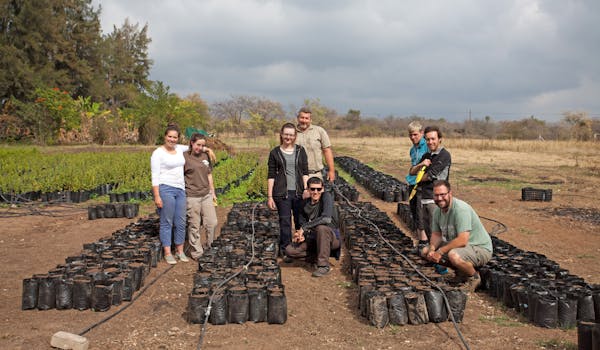
Work hands-on to support conservation projects alongside local communities
View details for Changemakers Service Learning Trip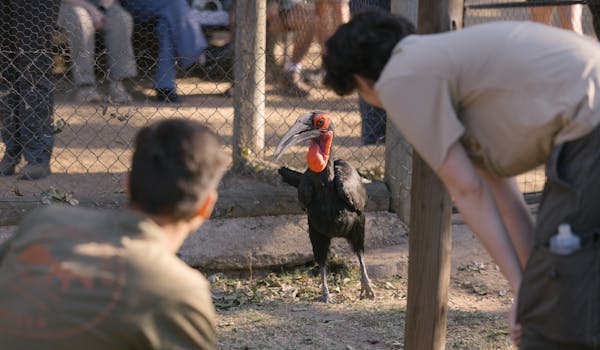
Gain experience working in an animal care centre and supporting conservation field work
View details for Kruger Animal Care & Conservation Trip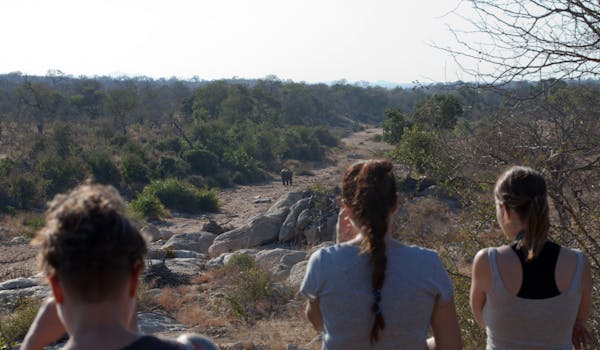
Give your students a broad taste of life working in African wildlife conservation projects
View details for Biology & Ecology Kruger Fieldwork Trip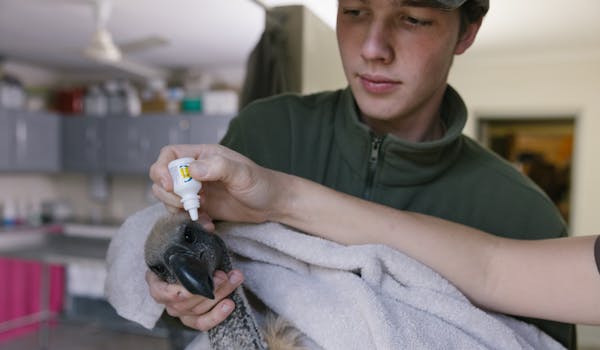
Expand your students’ experience by supporting real wildlife vets in the field
View details for Veterinary Medicine In Conservation Field Trip